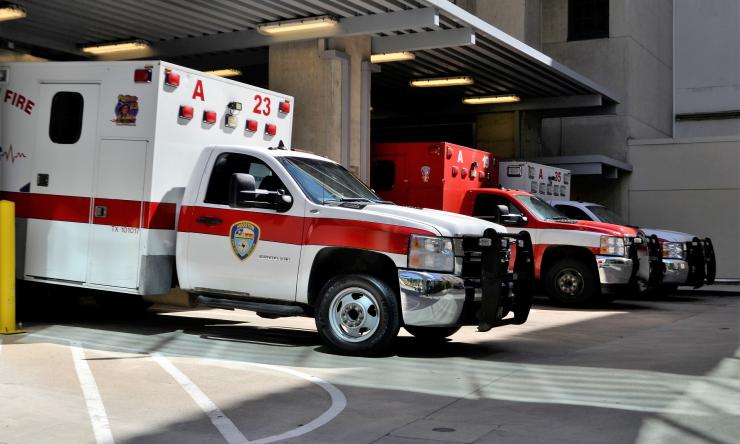PediDOSE study to begin for pediatric seizure emergencies
Baylor College of Medicine and Texas Children’s Hospital, in collaboration with Houston Fire Department Emergency Medical Services, Children’s Memorial Hermann Hospital, and UT Health, will begin the Pediatric Dose Optimization for Seizures in EMS (PediDOSE) study across the Houston area to evaluate if a standardized method for paramedics to administer the seizure medication, midazolam, leads to timely delivery of the right dose in an emergency setting so that less children arrive at emergency departments with an ongoing seizure.
Midazolam is a proven treatment used by paramedics to treat children who are suffering from seizures that do not stop on their own, a condition that can be life-threatening. However, delays in administering midazolam happen when paramedics must perform multistep calculations to determine the dose or try to insert an intravenous line in a child. The multistep calculations often lead to an underdose due to calculation errors. This results in one-third of children arriving via ambulance to the hospital still seizing.
“The overall goal of the study is to decrease the number of children arriving in an emergency department with an ongoing seizure while still maintaining patient safety,” said Dr. Manish Shah, principal investigator for PediDOSE and professor of pediatrics at Baylor, and Chief of Academic Development and Strategy, Division of Pediatric Emergency Medicine at Texas Children’s Hospital. “The importance of this is that seizures become harder to stop the longer they occur. Stopping a seizure quickly is essential to prevent brain damage, respiratory failure and death”
PediDOSE protocol
EMS agencies participating in this study will replace how they currently determine the midazolam dose with a new standardized treatment protocol approved by their medical director, with doses based on the child’s age. Researchers will collect information about children ages 6 months to 13 years transported by Houston Fire Department to any emergency department for active seizures.
“It is exciting that the Houston community is the lead site among 20 locations across the country that will enroll patients over a four-year period,” said Shah. “Over the course of the study, the participating EMS agencies will be randomly assigned a timeline for adopting the standardized treatment protocol. This will allow researchers to compare the new standardized treatment protocol to current methods and ensure safe implementation of the new protocol.”
Exception from informed consent
A child experiencing an ongoing seizure is having a life-threatening emergency. These situations are stressful for parents and require immediate treatment. This means that eligible children will be enrolled under an exception from informed consent (EFIC) process that follows federal rules for emergency research, has been approved by a research ethics review board and has been used for other EMS-based studies in both children and adults. Parents or guardians of a child enrolled in this study will be notified about their child’s participation after enrollment and will be able to choose whether or not they want to continue to participate.
Where can the Houston community learn more?
We invite you to learn more about the study by visiting https://www.texaschildrens.org/pedidose-study where you can read about the study procedures and provide your feedback about EFIC.










